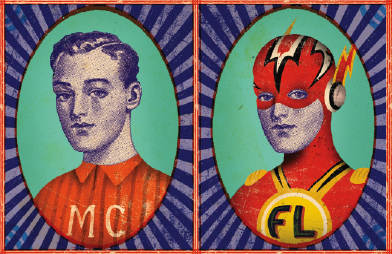Rethinking the First-Year Curriculum

Many alums look ing back on first-year Legal Research and Writing no doubt recall— perhaps with nostalgia, perhaps with embarrassment—their first, and possibly only, experience writing an appellate brief and arguing before a panel of three “judges.” The moot court assignment, which has occupied the second semester of first-year LRW, filled the role of introducing students to the art of written and oral advocacy. And although its success in fulfilling that mission has been frequently questioned, there hasn’t been much impetus for change—until now.
“When something has been an integral part of the curriculum for such a long time, it’s tempting to assume that it’s working the way it’s supposed to,” says Larry Kramer, Richard E. Lang Professor of Law and Dean. “We realized, however, that we could do a far better job preparing our students for the actual work that lawyers do—and that many will be doing as early as the summer after their first year of law school.”
Recognizing that the moot court requirements of one brief and one oral argument afforded a bare minimum of advocacy preparation, and that most students would benefit from development of a broader range of advocacy skills, the law school is trying something new. Instead of participating in moot court, 1Ls are now taking Federal Litigation, a popular class that previously has been offered as an elective only.
Federal Litigation is a simulation course that takes students from the beginning of a hypothetical case through the whole pretrial process, concentrating on the briefing and arguing of several pretrial motions. It was introduced at Harvard Law School in the 1970s as a means of augmenting the first-year civil procedure curriculum with practical skills and thereafter was taught as an elective for 2Ls and 3Ls. Kathleen M. Sullivan, Stanley Morrison Professor of Law and former dean, who taught federal litigation while at Harvard, brought the course with her to Stanford Law School, where it has been taught by a succession of instructors since the 1990s.
In many ways, the course remains unchanged from its original iteration. Based on the real-life drama surrounding the 1967 film Titicut Follies by famed documentary filmmaker Frederick Wiseman, the hypothetical case pits plaintiff Norman Nolan, an inmate at Claremont State Mental Hospital in Rhode Island, against defendant Best Film, Inc.
According to the complaint, Best Film violated the privacy rights of Nolan and a class of similarly situated inmates by making a film, without their consent, that exposes them in intimate and embarrassing situations. Best argues that it had the consent of the hospital administration and that, in any event, a film that serves the public interest—in this case, by exposing the horrendous conditions of a public institution—is protected by the First Amendment.
In the real case, Titicut Follies was the subject of an unprecedented injunction that lasted for more than 20 years, until Sullivan, serving as counsel for Wiseman, persuaded the court to lift it in 1991. To this date, it remains the only film enjoined for reasons other than obscenity. In the hypothetical case, the plaintiff likewise seeks to enjoin the exact same film, which has been retitled Claremont Review.
Federal Litigation students are assigned to represent either Nolan or Best throughout the course. By the end, students will have drafted a complaint, taken or defended a deposition, briefed and argued three motions, watched and critiqued six sets of oral arguments, had their written and oral arguments critiqued by instructors, and have served as judges for their classmates’ arguments.
“Key here is that, unlike the traditional moot court brief, the students must participate in a series of exercises that develop their research, writing, and advocacy skills. There is no substitute for iterative experience in learning how to analyze and advocate,” says Kramer.
Incoming 1Ls will begin Federal Litigation during the winter quarter and continue into spring quarter—with a total of 10 sections of approximately 17 to 18 students each. And for those students who are still eager to participate in moot court, the Marion Rice Kirkwood Memorial Competition, which moved to autumn quarter, is available to provide a rigorous appellate advocacy experience—as well as those irreplaceable memories.
